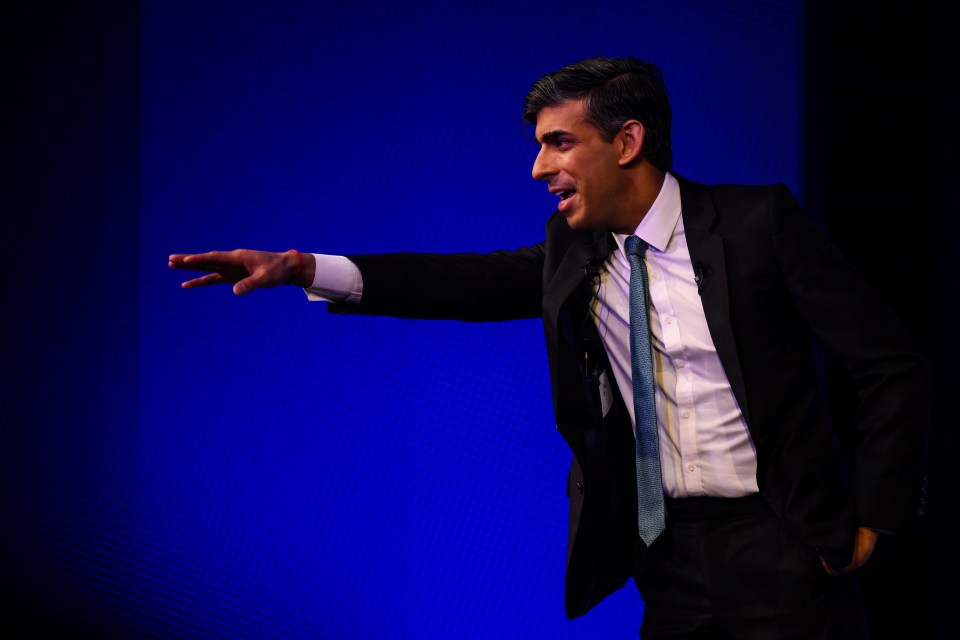Our languishing reputation on foreign aid opens the door to China’s influence

The UK spends more of its shrinking aid budget on housing refugees at home than on third countries who need it. Taking this money from the aid budget is a political choice, but a short-sighted one, writes Elena Siniscalco
It is a big week for migration in the UK. The Illegal Migration Bill comes back to Parliament tomorrow for its third reading. At the same time, there is a four-day Court of Appeal hearing against plans to send refugees to Rwanda.
One of the chief complaints on migration is the cost of housing refugees. But what many don’t know is that much of this money doesn’t come from the Home Office budget, but from the aid budget. Under international aid rules, the UK is allowed to pay for basic services and accommodation for refugees during their first year in the UK through the aid budget. The government spent £3.7bn on this in 2022, a sizable increase from the £31.bn spent in 2020. This is more than what the Foreign, Commonwealth and Development Office spent in Africa and Asia combined.
The government is making “a political choice to provide support to people in need of sanctuary in the UK at the expense of helping people facing conflict, climate change and inequality globally”, says Stephanie Draper, chief executive at Bond, a network of civil society organisations. This choice is political precisely because by taking this money from the aid budget, the Conservatives can claim no domestic cash is being spent on refugees. It’s an ingenious strategy for the short term, but the failure to tackle the causes of migration – hunger, high fertility rates, oppressive political regimes – will only lead to more migration.
Remember when Tony Blair stood up and promised to tackle “crime and the underlying causes of crime”? If you were to swap crime with migration, spending the handful of aid money we have left on a domestic problem is the equivalent of focusing on the former almost completely to the exclusion of the latter. If Blair had promised more police officers and nothing else, he would have been a source of ridicule.
This money also comes from a shrinking budget, at 0.5 per cent of the GDP. The 0.7 per cent target, axed under Boris Johnson, was signed off by Rishi Sunak, then the Chancellor.
Gone are the days of Britain as a “development superpower”. Now as aid projects get cancelled and partner organisations are left in the dark about when they might resume, our reputation as a generous partner fades away.
Clare Short left front line politics long ago. But as International Development Secretary under Blair, she was credited with making Britain an “intellectual leader” in foreign development, according to Jean-Paul Faguet, a professor of political economy at LSE. Her “outside the box” ideas were picked up and followed by the World Bank. She eventually quit Blair’s Cabinet in protest of Iraq. The baton was then passed to David Cameron. A fierce supporter of maintaining Blairite levels of foreign aid, he oversaw a series of above-inflation increases to the budget, and saw it as key to overturning the Tories’ “nasty party” reputation. But political forces were moving against him, with the newly established UKIP pushing to cut the budget.
Less money means less influence abroad. Conscious of reduced national capabilities, politicians have suggested focusing on aid that can be provided through multilateral organisations such as the World Bank and the IMF. Just days ago, Cameron was suggesting reforming the World Bank to counter the influence of Chinese investments in African countries.
Cameron wants the World Bank to pursue riskier investments, so it can raise more money to be spent in countries that need it. There is a decent appetite for reform at the Bank, especially with Barbados PM Mia Mottley leading the Bridgetown Initiative. Mottley wants to help countries facing high debts by mitigating unsustainable debt servicing – in simpler terms, finding new solutions to unlock liquidity for countries that otherwise struggle to access multilaterals’ money.
But this government has stepped back from a leading seat at the international aid table. At his recent trip to the US for the World Bank spring meetings, Jeremy Hunt flew under the radar. Whatever the World Bank and the IMF manage to achieve, it can’t substitute countries’ individual commitments to aid.
A government spokesperson notes the UK spent more than £12.7bn in aid last year and says it “remains one of the largest global aid donors”. Yet this is also a government that doesn’t want to talk about aid: two vocal MPs, Andrew Mitchell and Tom Tugendhat, are now in government so cannot openly campaign for a return to the 0.7 per cent of GDP budget.
International aid might not be a political lever like the NHS or crime, but downgrading it to the bottom of the list denotes blindfolded short-termism. In the currently fraught international climate, the UK needs friends; but as long as it retreats into Scrooge-like nationalism, it will make few.